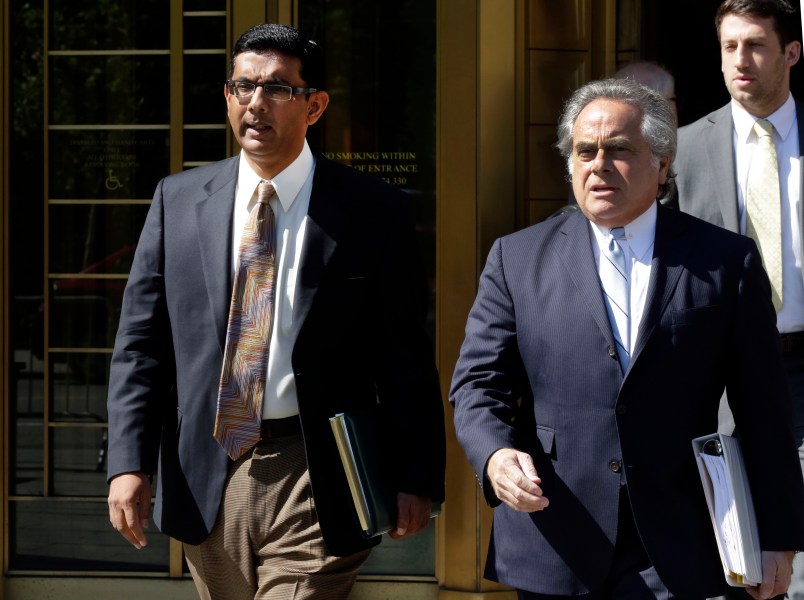The reviews are in. Or the review, anyway. And Dinesh D’Souza’s new film, “America: Imagine a World Without Her,” has been proclaimed “the perfect film to take the family to on a Fourth of July,” according to National Review.
In a review published Sunday, National Review’s John Fund said the movie, along with the accompanying book, delivers “a more polished and more powerful message” than D’Souza’s 2012 film 2016: Obama’s America. Fund gives D’Souza much credit for “wielding his sword at so many PC dragons in one sitting.”
“Did America owe something to the slaves whose labor had been stolen?” D’Souza writes in the book, according to Fund. The answer is yes, but “that debt … is best discharged through memory, because the slaves are dead and their descendants are better off as a consequence of their ancestors being hauled from Africa to America.”
When it comes to Native Americans, D’Souza writes that “Indians have gotten a bad deal.”
“At the same time, we should be clear about what the alternatives are,” he writes, according to Fund. “You say, ‘Give us back the Black Hills,’ You point out that there is uranium and other minerals in those hills, and now that land is worth a fortune. Once again, no Indian tribe knew how to mine uranium and no Indian tribe knew what to do with uranium if they had it. Other Americans have added value to the Black Hills by figuring out how to tap its resources, and now the Indians want the land back so they can take advantage of what others have figured out how to do.”
D’Souza writes in the book that his intent is to “turn the progressive critique on its head.”
“[Progressives] are not on the side of the ordinary citizen, because their policies lead to stagnation, impoverishment, indebtedness, and decline — all in evidence today,” he writes. “It is progressives who rely on government seizure and bureaucratic conquest to achieve their goals and increase their power. . . . I intend to blow the whistle on these people, starting with Obama and continuing with Hillary Clinton and the whole progressive menagerie.”
D’Souza, who pleaded guilty last month to violating a federal campaign finance law, told Fund in an interview that he hopes viewers accept the film on its own merits. (According to Fund, D’Souza briefly addresses his legal troubles in the film and “clearly conveys his view that he was selectively prosecuted.”) Fund concludes that while the movie isn’t “perfect,” and its arguments “sometimes aren’t sophisticated,” it is “the perfect film to take the family to on a Fourth of July.”
“I wager that when it opens on 1,000 screens on July 2, it will double or triple the box-office take of D’Souza’s first film,” Fund writes. “Here’s hoping it begins a long-overdue national conversation about the true meaning of America.”







Again - stupid people used to have the decency to be ashamed of their stupidity and STFU.
Nowadays we just rebroadcast what they say. Keep it up, TPM.
Hilariously delusional and utterly full of themselves.
Yeah, Atlas Shrugged III will finally turn us all into Randians, and Nicolas Cage’s Left Behind will make us see the folly of the separation of church and state.
Other than Ed Wood’s “Plan Nine From Outer Space”
I’m just hoping that Obama’s first (or last) line in the movie is “Where the white women at?”
Does anyone on the right, middle, or left really take this pitiful excuse for a political thinker seriously anymore? Sure, he’s good for a laugh because he’s always embarrassing himself by yelling “look at me! I’m trying to be controversial!”, but c’mon.